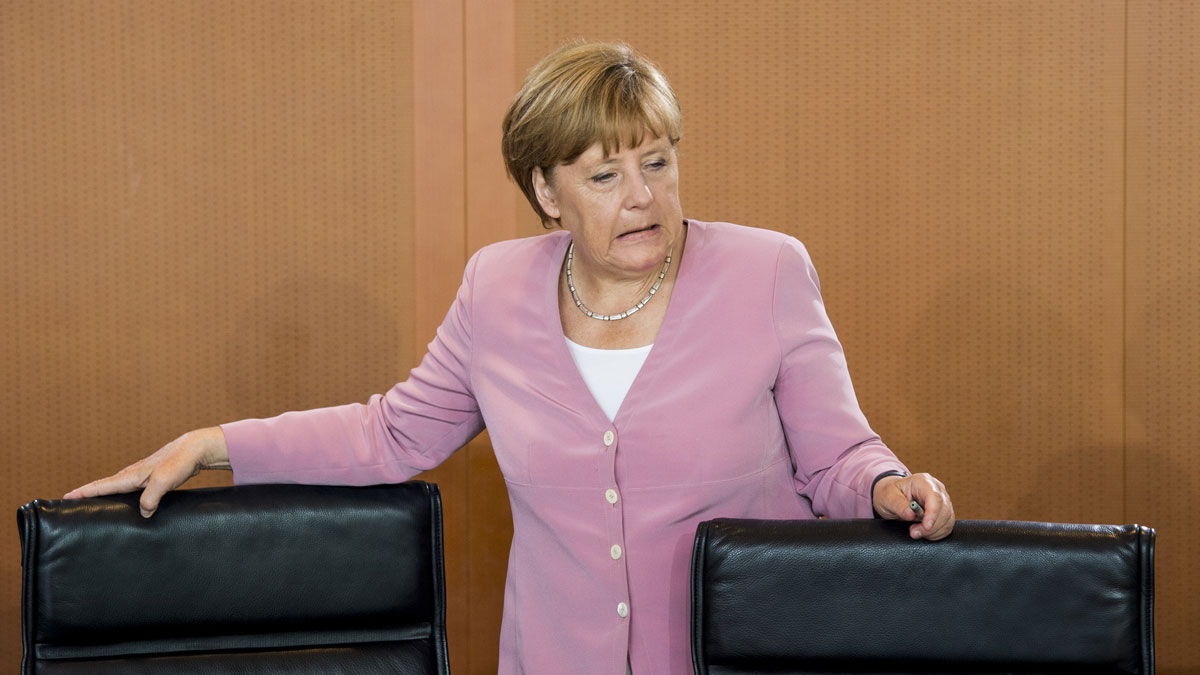Angela Merkel U-turns on same-sex marriage
Chancellor could offer MPs a free vote in bid to woo liberals ahead of election

A free daily email with the biggest news stories of the day – and the best features from TheWeek.com
You are now subscribed
Your newsletter sign-up was successful
Angela Merkel has signalled she will allow German MPs a free vote on same-sex marriage, in what many are seeing as an attempt to woo liberal voters ahead of September's parliamentary election.
Speaking at a debate organised by the magazine Brigitte, the Chancellor said same-sex marriage was "a really personal matter" and that she now favoured a "decision of conscience" on the issue.
The announcement effectively opens the door for members of her conservative Christian Democrats (CDU) and their Bavarian allies the CSU to vote for legalisation.
The Week
Escape your echo chamber. Get the facts behind the news, plus analysis from multiple perspectives.

Sign up for The Week's Free Newsletters
From our morning news briefing to a weekly Good News Newsletter, get the best of The Week delivered directly to your inbox.
From our morning news briefing to a weekly Good News Newsletter, get the best of The Week delivered directly to your inbox.
The CDU leadership reportedly spent an hour and a half discussing the matter on Sunday night while preparing the party's manifesto.
Coming less than three months before federal elections, "Merkel's comments could take the wind out of her critics' sails and open her party up to the widest possible range of post-election coalitions", says The Guardian.
The Social Democrats (SPD), Free Democrats (FDP) and Greens all support legalisation and have made it conditional to joining any coalition after the election.
In 2013, Merkel had said she was "not sure" about same-sex marriage "as far as the children's welfare is concerned" and while many politicians and social media users welcomed her change of heart, "some expressed frustration that [she] is taking action only after 12 years in power with others seeing her announcement as no more than a political tactic", says CNN.
A free daily email with the biggest news stories of the day – and the best features from TheWeek.com
Although Germany has same-sex civil partnerships, the CDU has until now opposed gay marriage "in order to keep its most conservative supporters loyal and to avoid friction with the CSU, which champions traditional families", says the BBC. However, with Merkel riding high in the polls, it appears the party has decided it has the political legroom to reach out beyond its traditional base.
Following Merkel's comments, German politicians called for a vote to be held as soon as possible, with Martin Schulz, the leader of the SDP, saying he will push for one "this week".